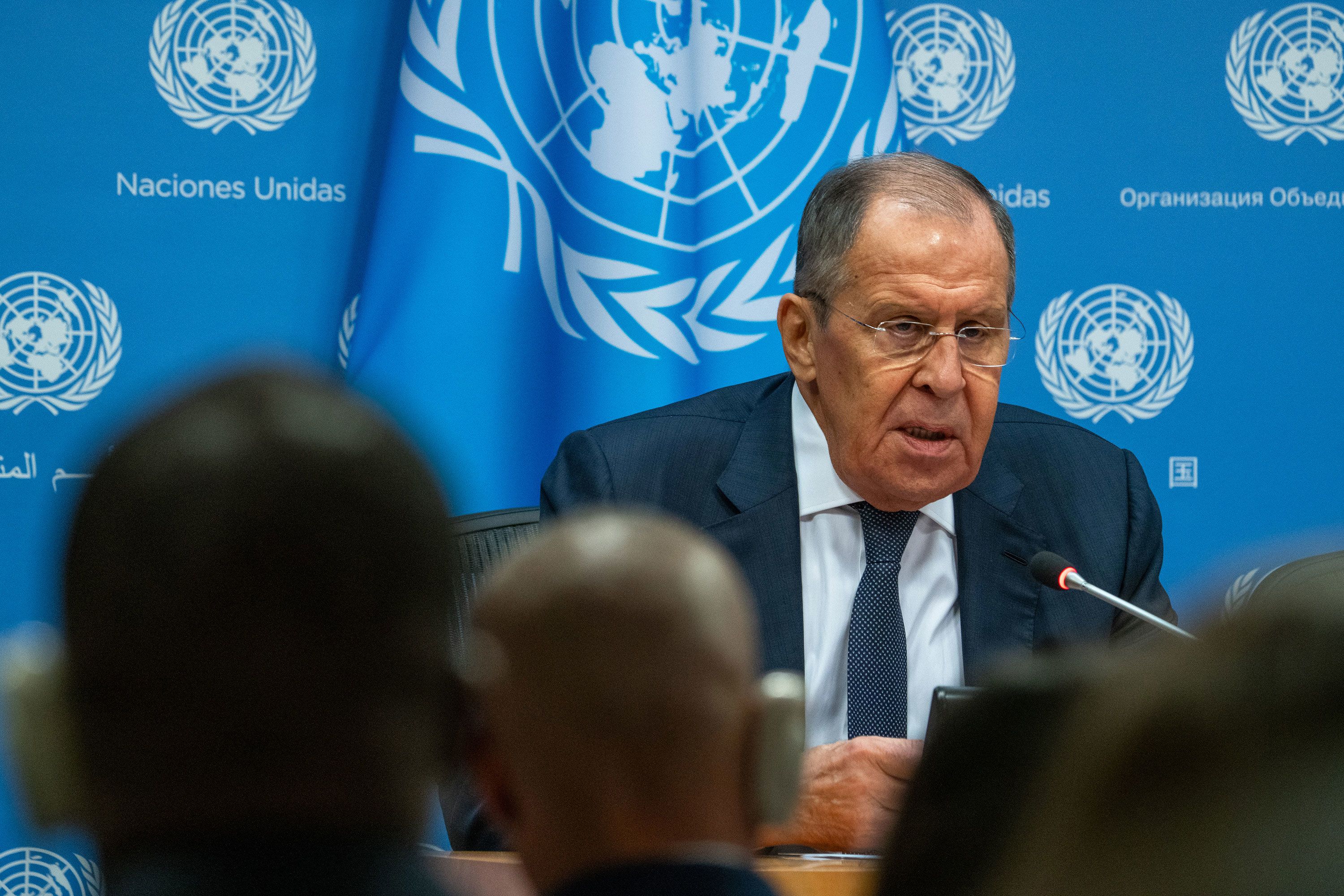Russia’s Lavrov accuses West of direct fighting in Ukraine

Largely glossing over Ukraine, Russia’s Foreign Minister Sergey Lavrov on Saturday (23 September) accused Western powers through their support to Ukraine of effectively having entered direct fighting against Moscow.
“You can call it anything you want, but they are fighting with us, they are straight-up fighting with us. We call it a hybrid war, but that doesn’t change things,” Lavrov told reporters in a briefing at the United Nations.
US President Joe Biden has repeatedly said he is seeking to avoid a direct confrontation with Russia, a fellow nuclear power, while his administration has also distanced itself from Ukrainian attacks into Russian territory.
But Lavrov pointed to the billions of dollars in Western military equipment provided to Kyiv since Russia invaded the country last year in February, as well as US and British intelligence support and the presence of Western military advisors.
The West is “de facto fighting against us, using the hands and bodies of Ukrainians,” Lavrov said.
“I think everybody present here who pays at least some attention to (…) the situation in Ukraine knows very well that Americans, Britons and others are fighting, first of all, through providing more and more weapons,” he said.
Russia’s top diplomat was taking part in the annual United Nations General Assembly, where all eyes earlier this week were on Ukrainian President Volodymyr Zelensky, who flew to New York to appeal for greater support against the Russian invasion.
Zelenskyy on Wednesday addressed a special UN Security Council session, in which he demanded that Russia be stripped of its veto powers in the body.
Lavrov, the highest-ranking Russian official present in New York, had shown up well after the Ukrainian president had spoken.
“I watched it on TV – he seemed rather grim,” he told reporters.
“But I have my own affairs to attend to. We all knew what he was going to say, so why waste time?”
Zelenskyy has promoted a 10-point blueprint for ending the war that would include a complete Russian withdrawal from Ukrainian territory — including Crimea, which Moscow seized in 2014 – and a special tribunal for accountability on war crimes.
Lavrov dismissed Zelenskyy’s plan and denounced Washington and European Union for backing it.
“It is not realistic and everybody understands this, but at the same time they say this is the only basis for negotiations,” Lavrov said. “We draw our conclusion that nobody wants to seriously show an understanding of what is happening,” he said.
On ending the war, “under these circumstances, if they say it’s on the battlefield, then fine, it’ll be on the battlefield.”
He added that Moscow left the Black Sea grain initiative because promises made to Russia – including removing sanctions on a Russian bank and reconnecting it to the global Swift payments system – had not been met.
He said the latest UN proposals to revive the export corridor for Ukrainian agricultural products were “simply not realistic”.
Earlier in his speech to the UN General Assembly, Russia’s top diplomat denounced the United States and the West on Saturday as self-interested defenders of a fading international power structure, but he didn’t discuss his country’s war in Ukraine.
Under assembly procedures that give the microphone to presidents ahead of cabinet-level officials, Lavrov spoke four days after Zelenskyy and US President Joe Biden.
Ukraine’s seats in the hall were empty for at least part of Lavrov’s speech, as were many seats on the last day of the gathering.
In his speech, Lavrov aimed to portray a wider angle to the Ukraine war fallout, running home the Kremlin’s usual narrative of Western countries’ efforts to cling to outsized influence in global affairs.
He accused the West of a neo-colonial mindset in its overtures to the Global South to win backing for Ukraine in the war.
Instead, Lavrov spoke of a “global majority” that was being duped by the West, which he described as an “empire of lies”.
The rest of the planet is sick of it, Lavrov argued: “They don’t want to live under anybody’s yoke anymore.”
According to him, this would show in the growth of such groups such as BRICS — the developing-economies coalition that currently includes Brazil, Russia, India, China and South Africa and recently invited Argentina, Egypt, Ethiopia, Iran, Saudi Arabia and the United Arab Emirates to join next year.